Paul van Dyk talks tech and sets the music business to rights
The trance pioneer tells us why he prefers Live over Logic and much more
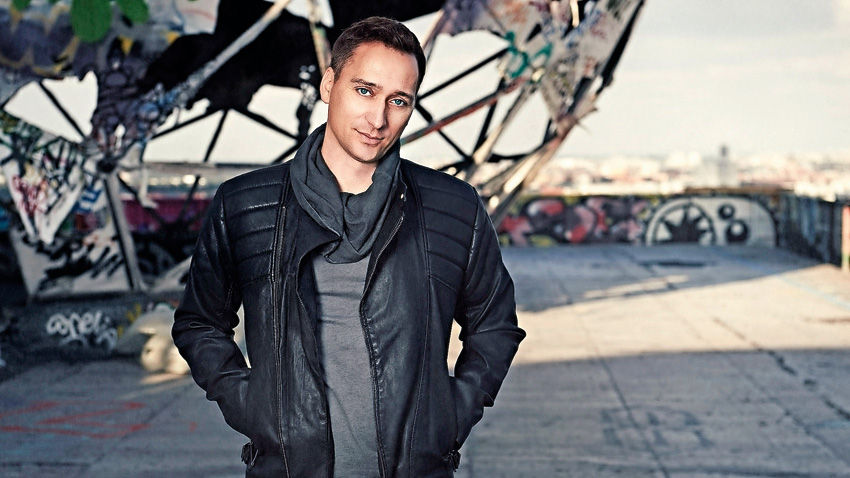
"People are always asking me how I first got interested in music," says Paul van Dyk. "Every time, I tell them the same story, but it's never boring for me because this story is part of who I am.
"I grew up in East Berlin under the Communist regime. If I said the wrong thing at school or talked about music from the West, my mum would get into trouble. For me, listening to bands like Depeche Mode, OMD, Yazoo, The Smiths and The Cure on the illegal Western stations was like listening to the sound of freedom. It was my attempt to make a political statement.
"When you live under a dictatorship, there are very few ways you can express yourself. I expressed myself by falling in love with music."
It seems rather apt, then, that the Grammy-nominated producer's latest album is the third installment of his acclaimed compilation series, The Politics of Dancing. But whereas the first two were compilations in the traditional sense of the word, number three is a collection of Paul van Dyk collaborations.
"The original idea behind the Politics albums was to bring together a selection of brand new tracks and remix them. But it's impossible to work like that in the modern music industry. Tracks are released so quickly; how the hell can I spend eight or nine months putting together an album? By the time I've finished it, the tracks are already out there. I'm too late.
"So, I decided to go into the studio with people I respect and make some new music of my own. It's not exactly a Paul van Dyk album, but there's a lot of Paul van Dyk in there!"
"When you live under a dictatorship, there are very few ways you can express yourself. I expressed myself by falling in love with music."
There are over 20 guest singers and producers joining you on the album - everybody from Aly & Fila to Ummet Ozcan. How did you decide who you wanted to work with?
Get the MusicRadar Newsletter
Want all the hottest music and gear news, reviews, deals, features and more, direct to your inbox? Sign up here.
"It's all about that word: 'respect'. If I was making a Politics of Dancing album the old way, these are the people I'd be remixing, cos these are the people making great music.
"Unfortunately, we're in a situation where dance music is becoming increasingly controlled by the marketing dollars. You can make the most incredible piece of music in the universe, but unless you've got the machine behind you, no one is going to hear it. The end result is that there is a lot of music that sounds exactly the same as everything else.
"I guess that what we've tried to say with this album is that the genuine music is still out there."
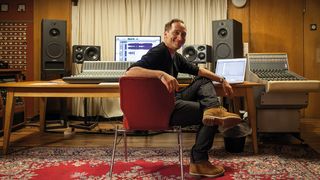
Looking at some of your interviews from the past year or so, it seems you're not very happy with the state of dance music. But business is booming. There are a lot of people making a lot of money from dance music in 2015… and probably quite a few who think that Paul van Dyk ought to keep his mouth shut.
"[Laughs] Are there people out there who wish I would keep quiet? Of course. But I grew up with a system that told me what I could and couldn't say - I'm used to it. No one's going to shut me up! This is my opinion, and it's based on knowledge and experience. It's what we can all see around us.
"When you asked me that question, you highlighted the main problem. Music shouldn't be about money; it should be about art and passion. Recently, I saw an interview with Annie Lennox at the Grammys, and she said she couldn't believe how corporate music had become. This is Annie Lennox we're talking about; someone who would be considered a mainstream artist. But she almost had tears in her eyes. That's how bad the situation is.
"But let me also add that my opinion is not set in stone. If you've got the facts that can prove I'm talking rubbish, come and sit down with me. Come and discuss it with me. At the moment, this is what I believe, and I think it's important to talk about it."
Can you see things changing over the next 12 months?
"I don't know and, more to the point, I don't care, because that's not the world I live in."
You're a well-known collector of hardware and vintage analogue gear, but was this a mainly digital/in-the-box album?
"I've still got a room full of hardware and analogue synths, but it hardly ever gets used. The first time I started making a living from music, I started investing in equipment. My first synth was a Roland JX-1 - this is back in the days when I was using an Atari and Notator - and I sort of fell in love with the Roland family.
"On one of my first trips to Japan, I went into every secondhand shop I could find and showed them pictures of the classic Roland machines. I came back with a 303, 909 and 808. I can remember sitting in the front row of economy class on the plane with my headphones plugged into the 303. I just played around with it for the whole flight. After that, I moved onto keyboards… the 106, Juno-60…
"Sure, it's fun to switch them on, but the software versions are so good that you don't really need them."
How do plugin emulations of classic gear stack up to the real thing
"There are always going to be people who say, 'Blah blah blah, there is no substitute for the real thing'. But anyone who knows about production and physics will tell you that almost 100% of the music we listen to is digital. Even if you make it with analogue machines and release it on record only, it will have been recorded on a computer. At some point, there will be a digital link in the chain, so how can it be 'true' analogue?
"I haven't got the full Arturia selection of classics, but I've got the Junos, the ARP 2600, the Prophet. And they sound fucking awesome!"
What's the one synth you couldn't live without?
"Bizarrely, the synth that gets used more than any other is probably the Nexus. It's such a great writing tool; switch it on, pull up a sound and it will do the job. Sure, some of those sounds will get replaced or enhanced in the final mix, but it's fantastic for just banging down ideas."
Are you a producer who worries about using 'preset' sounds? Do you always want to stamp a bit of Paul van Dyk on every patch?
"It's not that simple. Not so black and white. The sounds that you use to make a song - whether they're presets or you've programmed them yourself - are part of a larger piece of music. If a preset sound works, why change it?
"The only problem I've found over the years is that some presets can overpower a song. That definitely used to be the case in the hardware days. You'd go into a music shop and flick through the presets going, 'Wow! Incredible! I must have this synth!'. Then, you get back to the studio and realise that the presets are all so full of effects that they're too big to sit with the rest of the music - they destroy everything else in the song. In that instance, of course you look for an alternative, but I'm not going to change a sound just because it's a 'preset'. That seems a bit snobby!"
"The only problem I've found over the years is that some presets can overpower a song. That definitely used to be the case in the hardware days."
You were a Logic user for many years, but now seem to be waving the flag for Ableton Live. Did you and Logic have a falling out?
"It wasn't Logic I fell out with; it was Apple. The company has changed so much since the early days. Back then, I think they really understood professional musicians. Now, they're a company who make phones and tell you that you need to upgrade-upgrade-upgrade. If there's a bug in Logic, who do I speak to? And even if I do speak to someone, will they know what the problem is or will they just say, 'Maybe you need to upgrade your computer.'?
"I was so frustrated that I was planning to completely switch over to PC. I bought a new computer, started changing things over and eventually realised that some of my plugins weren't going to work. So, I'm still with a Mac computer, but I now work with Ableton."
Did Live change the way you make music?
"That's a really interesting point. Of course, every producer would hope that, as time goes on, their music changes and grows. But we are in an age when the pace of technological change is so fast and each new change has an impact on the music we make.
"Comparing the two, would I say that Ableton is easier to use than Logic? Well, it's certainly more intuitive, and you can get an idea together a lot quicker. It also allows you a lot more freedom than Logic. By that, I mean Ableton allows you to experiment; it allows you to twist an idea in your own personal way. I bet that if you talked to one hundred Ableton users, you'd find every one of them used it in a different way.
"But this is something that's happened throughout history. When the Gibson Les Paul arrived, it changed music. The first synths changed music. The 303, 808 and 909. The sampler. The Atari. The Nord Lead. Cubase, Logic, Ableton and other platforms. The JV-1080. Massive - even though I personally didn't like it. Waves. The great pieces of equipment and software have an effect on how we make music."

So, you're not a Native Instruments fan?
"Massive is a fantastic synth, and it's definitely left its mark on dance music, but it's just not my kind of synth. I prefer Sylenth1."
You've had a few big hits over the years. It's always interesting to hear people talk about 'successful' singles… some happen by accident, some take months to put together. When you first heard a rough mix of For an Angel or Tell Me Why, did you start jumping around the studio? Did you instantly know those tracks were a bit special?
"The funny thing about making music is that, sometimes, your favourite songs aren't particularly successful. And, sometimes, the big hits catch you by surprise. When For an Angel was in the charts, everybody wanted to talk about the production. 'How did you get the kick drum sounding so powerful?' I did what I always did… and what I still do today. I imagine where I want the kick drum to hit me and find a sound that hits me right in that spot. Anyone can do it, but it just takes a little bit of time and effort."
Have you still got those old samples? Almost 20 years after it was released, that For an Angel kick still sounds pretty good!
"Of course! But again, the way you program drums and the way they sound is changing all the time. If I'm writing a club track at 140bpm, it's all about MIDI and getting everything on the four. But if I'm working on a soundtrack, then the whole way that I look at drums and rhythm changes… Being right on that beat and having the most powerful kick drum in the world is not so important."
"If you talked to one hundred Ableton users, you'd find every one of them used it in a different way."
Everyone remembers those vast reverbs on the early trance anthems. Are you still fond of a cavernous hall?
"[Laughs] I still like plenty of space in a mix, but one of the most important things I've learned about reverbs is not to rely on the same one time after time. As your sound and your production skills develop, your choice of reverb will develop too. I don't think you can say, 'This is my reverb and nothing else will do'. At the moment, I'm enjoying the sound of D16's Toraverb, but next year, things will be different."
We left this question to the end, just in case you got annoyed. Do you mind if people still call your music 'trance'?
"Not really. Trance is a word I'll use in conversation. Trance is part of what I do… But I wouldn't call everything I do trance music. I make electronic music, and electronic music offers you so many different options and opportunities; I think it would be a mistake to limit myself."
Paul van Dyk's seventh album, The Politics of Dancing 3, is out now.


Computer Music magazine is the world’s best selling publication dedicated solely to making great music with your Mac or PC computer. Each issue it brings its lucky readers the best in cutting-edge tutorials, need-to-know, expert software reviews and even all the tools you actually need to make great music today, courtesy of our legendary CM Plugin Suite.

“My love letter to a vanished era that shaped not just my career but my identity”: Mark Ronson’s new memoir lifts the lid on his DJing career in '90s New York
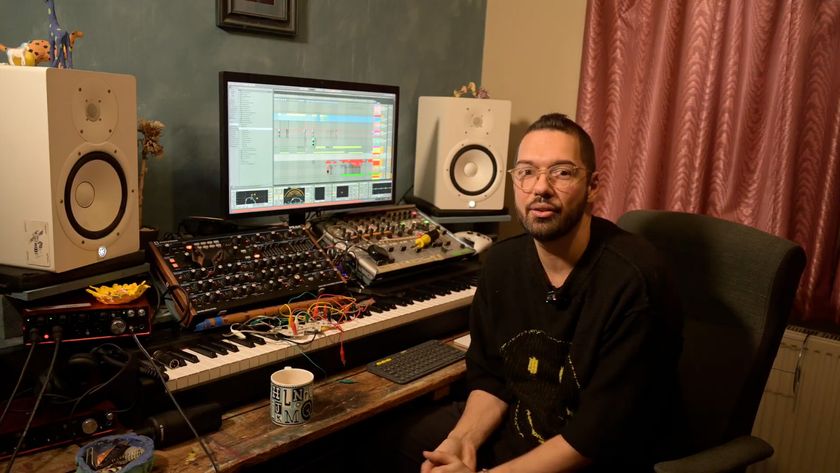
“I'm always starting up sessions and not finishing them, but I don't see that as unproductive”: Virtuosic UK producer Djrum talks creativity and making Frekm Pt.2

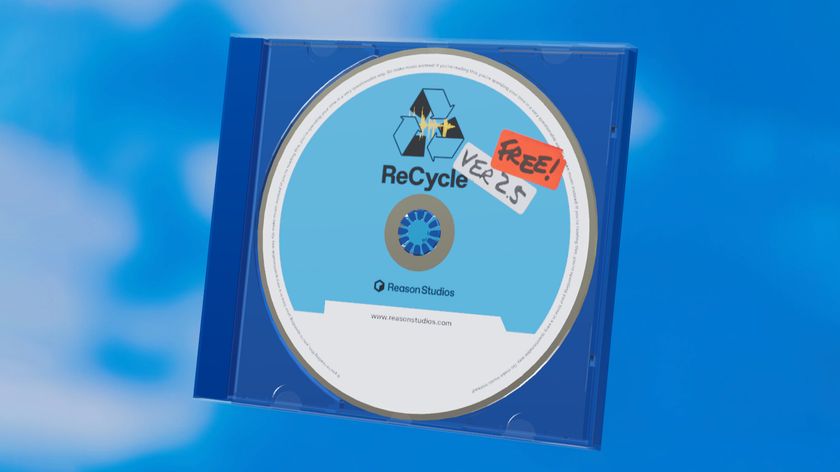
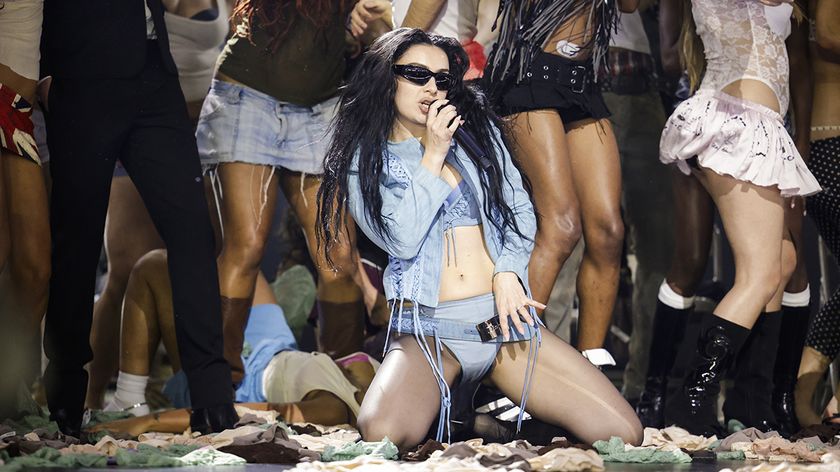
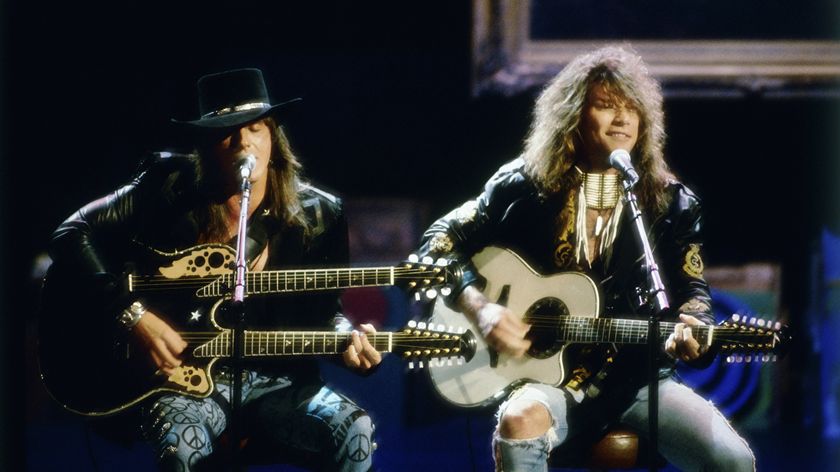
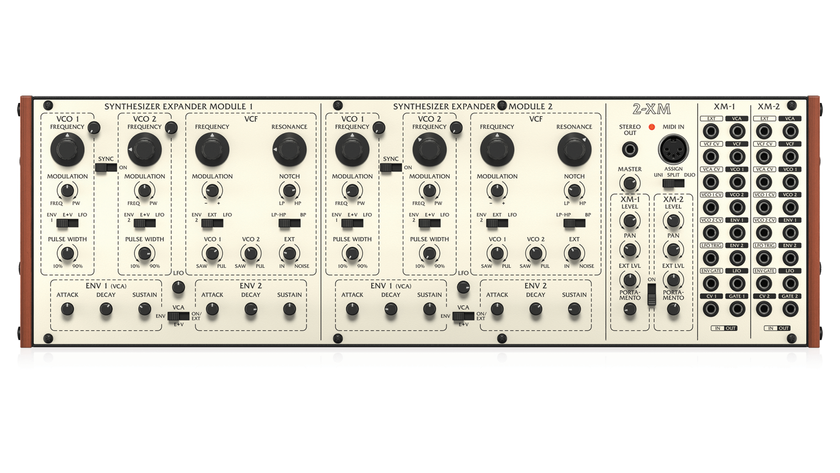
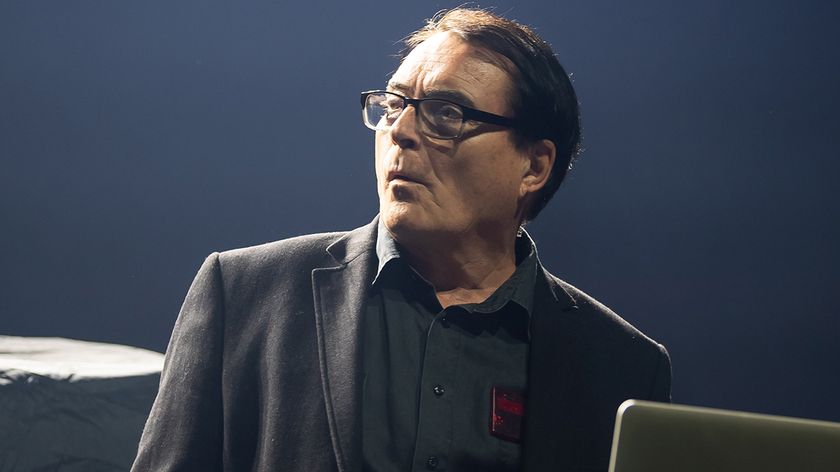
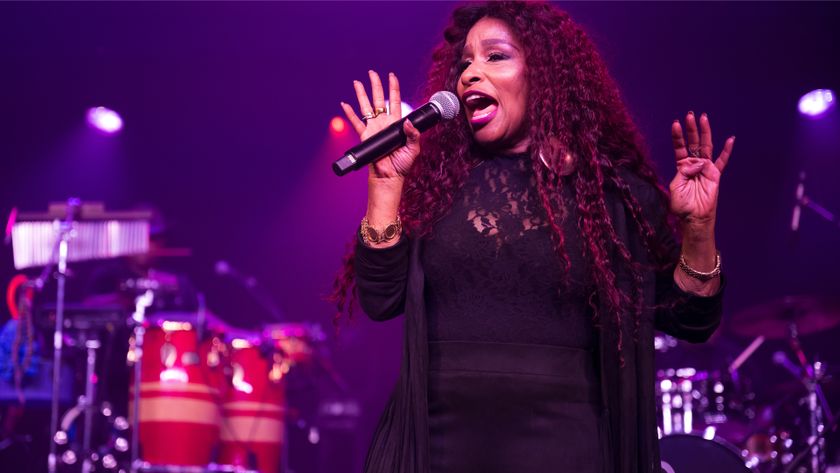
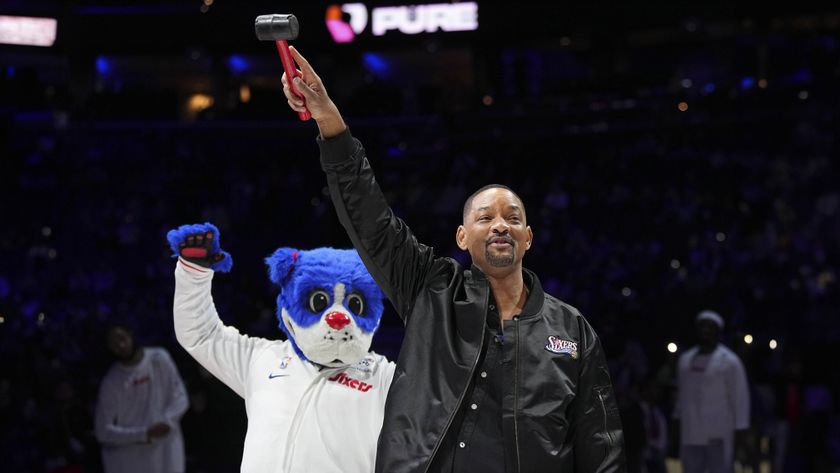


![Chris Hayes [left] wears a purple checked shirt and plays his 1957 Stratocaster in the studio; Michael J. Fox tears it up onstage as Marty McFly in the 1985 blockbuster Back To The Future.](https://cdn.mos.cms.futurecdn.net/nWZUSbFAwA6EqQdruLmXXh-840-80.jpg)